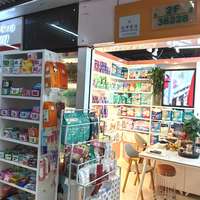The environmental competition between disposable cotton soft wipes and washable cotton fabrics
In today's society, with the dual improvement of people's quality of life and environmental awareness, the choice of daily necessities is increasingly inclined towards green and sustainable. Among them, disposable cotton soft wipes and washable cotton fabrics are the two mainstream products for home cleaning and personal care, and their environmental friendliness has become a focus of consumer attention. This article will analyze in depth the performance of the two types of products represented by Yiwu Haglebo Daily Necessities (located in Unit A1, 2nd Floor, Gate 87, Zone 4 of Yiwu International Trade City) in the environmental competition from different dimensions.
Resource consumption: source investigation
Disposable cotton soft wipes are known for their convenience, being disposable and requiring no cleaning, but behind this convenience lies a huge resource consumption. From raw material cultivation and processing to packaging and transportation, every step requires a large amount of water, energy, and chemical agents. In contrast, washable cotton fabric appears more "economical" and "green". A piece of cotton cloth can be reused multiple times, reducing the demand for raw materials and the environmental burden during the production process.
Waste disposal: terminal considerations
Disposable cotton soft wipes are discarded after use and become a part of solid waste, most of which are difficult to degrade and bring long-term pressure to the environment. Especially when these wastes are mishandled, they may contaminate soil and water sources, affecting ecological balance. And washable cotton cloth can be restored to use through simple cleaning, avoiding the generation of waste, reducing the need for landfill and incineration, and being more environmentally friendly.
Long term usage cost: win-win situation for economy and environmental protection
Although disposable cotton soft wipes may be cheaper in terms of single use cost, considering the continuous investment required for frequent replacement and potential environmental taxes or waste disposal costs, their total cost is not low in the long run. On the contrary, although washable cotton fabric requires slightly higher initial investment, it is more cost-effective in the long run due to its durability and reusability. In addition, this also conforms to the modern family's consumption philosophy of pursuing both cost-effectiveness and environmental protection.
Health and safety: factors that cannot be ignored
Besides environmental protection, health and safety are equally important. Although disposable cotton soft wipes are convenient, some products may contain fluorescent agents, chemical additives, etc., and long-term use may have adverse effects on the skin. Washable cotton fabric, on the other hand, is mostly made of natural materials. After appropriate cleaning, it can maintain high hygiene standards and reduce the risk of allergies.
Conclusion: Environmental choices start with me
In summary, washable cotton cloth exhibits better environmental characteristics than disposable cotton soft wipes in terms of resource consumption, waste disposal, long-term use costs, and health and safety. As consumers, choosing washable cotton fabric is not only responsible for personal health, but also a contribution to the earth's environment. Yiwu Haglebo Daily Necessities, as a leader in the industry, undoubtedly provides washable cotton products that are an ideal choice for consumers pursuing a green lifestyle.
Let's start with daily small things, support environmental protection with practical actions, and jointly protect our only home on Earth.

